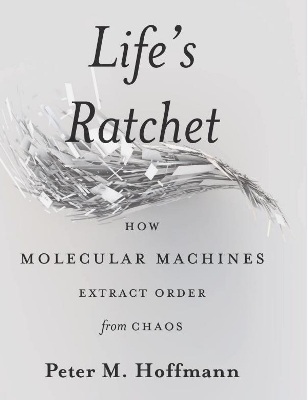Nov 2 2012
A new book that delves into the unexpected properties of life at the nanoscale was released this week by Basic Books. "Life's Ratchet: How Molecular Machines Extract Order from Chaos," by Peter M. Hoffmann, Ph.D., professor of physics and materials science and associate dean in Wayne State University's College of Liberal Arts and Sciences, uses the principles of physics – the science of levers and pulleys, atoms and quarks – to explain life.

Hoffmann explores at the nanoscale how the cells in the human body come to life. At this scale, the energy of the random motions of atoms can move molecules, initiate chemical reactions or create voltages, allowing for the existence of independently moving nanoscale machines. According to Hoffmann, the complex molecules of human cells can be called "molecular machines," or "nanobots."
"These machines, unlike any other, work autonomously to create order out of chaos," said Hoffmann. "Life emerges from the random motions of atoms – molecular storms – filtered through the sophisticated structures of our evolved machinery. As we enter the microscopic world of life's molecules, we find that chaos, randomness, chance and noise are our allies."
According to Hoffmann, to make the molecular storm a useful force for life, it needs to be harnessed and tamed by physical laws and sophisticated structures.
"Thanks to nanotechnology, we can now see the smallest parts of life at work: autonomously moving molecules performing specific tasks like tiny robots," said Hoffmann. "Our cells are cities full of molecular-sized worker bees who built themselves, go where they are needed, do what they need to do and are recycled again."
Hoffmann, an expert on the latest advances in nanoscience, is the founding director of Wayne State's biomedical physics program. He is the recipient of numerous awards including the National Science Foundation Faculty Early Career Development Award, the WSU Department of Physics' Richard J. Barber Faculty Award and many others.